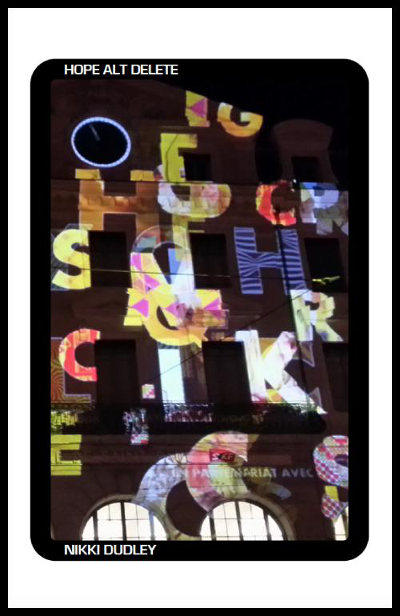 Poet and author Nikki Dudley’s first full length collection is small, spiky and full of attitude. Rolling out and tuning into a multitude of voices, it feels like a conversation only half-overheard. Tantalising segments glimmer on the page, inviting us to move closer, listening harder, and maybe pocket a shining phrase or two to carry home and examine at our leisure.
Poet and author Nikki Dudley’s first full length collection is small, spiky and full of attitude. Rolling out and tuning into a multitude of voices, it feels like a conversation only half-overheard. Tantalising segments glimmer on the page, inviting us to move closer, listening harder, and maybe pocket a shining phrase or two to carry home and examine at our leisure.
Nikki’s energy rustles behind each line, as she plays with familiar words and makes them at once more explicit and more unknown. Sentences stretch in strange, beguiling directions, or curl up tight, and words skip defiantly into slots that seem meant for something else, or break up entirely in ways that insist we regard them anew.
“Can you under-stand me?
Can you over-stand me?”
In other spaces, words are superseded by font, punctuation and blank lines that express everything you need to know.Nikki’s irreverence is a delight – she twists language to do her bidding, and just as you think you could be lost forever, she throws out a lifeline in the form of the most exquisite metaphor or simile.
This occurs most powerfully in The Day You Died, when Nikki summons up emotions and sews them to the page. “Everything rolled over me like I was land,” she writes, then, a few lines later:
“And will I wake up
And will you stay with me
when the dreams throw me
Out of time…”
The placement (mimicked inexactly here due to my publishing platform, sorry Nikki!) feels as vital as the word choices, shaping our understanding of the feelings behind the poem.
Meanings shift and morph between lines as a single word is shared by two statements, but the underlying lament remains steadfast. At times this stream of consciousness is interrupted abruptly by a statement inviting us to [] deselect if you don’t want to receive marketing from our partners and affiliates forever.
Nikki is examining not only love and human relationships, but how our modern means of communication have infiltrated and, in some cases, superseded these.
As such, Nikki’s evocations of other senses are pleasingly unexpected. The smell of cut grass is “jarring”, “colours lie”, and flowers are “useless”, as thought the impressions experience offline are less real than those observed online.
And yet, love, it seems, has the power to overcome this. Stop the bus builds and swells from moment to moment, reaching crescendo as “Doors open and chest caves.” Who hasn’t felt that exquisite torture of burgeoning love when parting is an agony?
Deliberate misspellings speckle the text: whirled instead of world; loose instead of lose; bow tea full instead of beautiful, each one adding extra depth to poems so that one sense shimmers atop another. In the poem Crossed words, she describes them as “butterflies we cannot tame”, and then invites us to “talk in crosswords.”
In cost-benefit, the playfulness expands to insubordinate proportions, but despite the apparent irreverence, there’s an undertone of seriousness. There’s an awareness of loneliness, hunger and the precariousness of our own apparent security. “shops closetheirmouths”, and “street lights flicker.”
She reminds us that, regardless of digital distractions, we all seek love, and we are all responsible for the small travesties committed within eyeshot.
Oh, it appears that experimental poetry may be catching.
Read Nikki Dudley’s guide to writing experimental poetry.
Hope Alt Delete by Nikki Dudley is published by and available to buy from Knives, Spoons and Forks Press.
